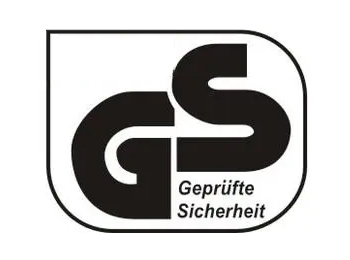
The GS logo is a powerful marketing tool that enhances customer confidence and desire to buy. Although GS is a German standard, it is recognized by the vast majority of countries in Europe. And while meeting GS certification, the product will also meet the requirements of the CE marking of the European Union. Unlike CE, the GS mark is not legally mandatory, but because safety awareness has penetrated into the general consumer, an electrical appliance with the GS mark may have greater competitiveness in the market than ordinary products.
Main differences:
1, CE mandatory, GS non-mandatory;
2, CE does not need to pay annual fee, GS needs to pay annual fee;
3, CE no production plant line inspection, GS needs to produce factory production line inspection at least once a year;
4, CE unmanned ergonomic evaluation, GS needs to evaluate ergonomic requirements.


 Nina She
Nina She